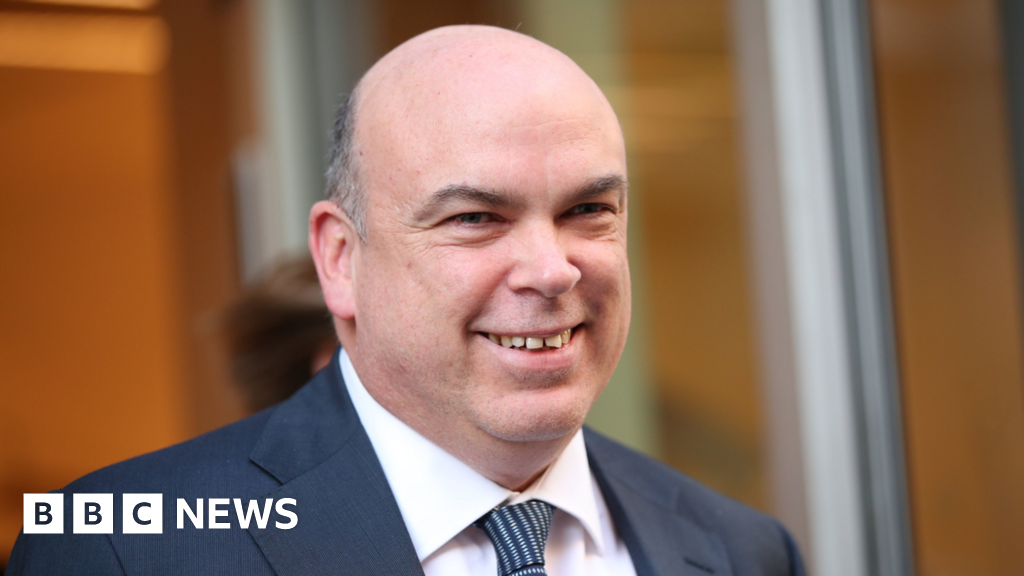British tech tycoon Mike Lynch has been cleared of fraud charges he faced in the US over the $11bn (£8.6bn) sale of his software firm to Hewlett-Packard in 2011.
A jury in San Francisco found him not guilty on all counts in a stunning victory for Mr Lynch, who had been accused of inflating the value of Autonomy, his company, ahead of its sale.
Mr Lynch, who faced more than 20 years in prison if convicted, had denied the charges and took the stand to defend himself.
In his testimony, he maintained he had focused on technology not accounting, distancing himself from other executives, including the company’s former chief financial officer who was already successfully prosecuted for fraud.
“I am elated with today’s verdict and grateful to the jury for their attention to the facts over the last 10 weeks,” Mr Lynch said in a statement.
“I am looking forward to returning to the UK and getting back to what I love most: my family and innovating in my field.”
University of Cambridge graduate Mr Lynch co-founded Autonomy in 1996 out of a specialist software research group called Cambridge Neurodynamics.
He led it as it grew to be one of the UK’s biggest companies, winning him comparisons to Microsoft’s Bill Gates and Apple’s Steve Jobs.
The company, known for software that could extract useful information from “unstructured” sources such as phone calls, emails or video, was ultimately sold to Hewlett-Packard (HP) in 2011 in a deal that ranked as the largest-ever takeover of a British technology business at the time.
Mr Lynch made £500m from the sale. Just a year later, HP wrote down the value of Autonomy by $8.8bn.
Years of legal battles followed.
The company’s chief financial officer, Sushovan Hussain, was found guilty of fraud in 2018 and later sentenced to five years in prison.
US prosecutors brought charges against Mr Lynch in 2018, accusing him of inflating the value of the firm using backdated agreements to mislead about the company’s sales; concealing the firm’s loss-making business reselling hardware and intimidating or paying off people who raised concerns.
Mr Lynch, who lives in Suffolk, was eventually extradited after a UK judge ruled in favour of HP in a similar civil fraud case in 2022. HP is seeking a reported $4bn in that case.
Mr Lynch, a former UK government adviser who sat on the boards of the BBC and the British Library, had faced house arrest in the US while preparing for the trial which began in San Francisco in March.
Prosecutors had called dozens of witnesses to the stand, including the former head of HP Leo Apotheker, who was fired shortly after the purchase was announced.
But the arguments fell flat. Mr Lynch’s team pushed the argument that HP had failed to properly vet the deal and mismanaged the takeover, while he testified he was uninvolved with the transactions being described.
Judge Charles Breyer had already dismissed one count of securities fraud during the trial for lack of evidence.
Abraham Simmons, a spokesman for the US Attorney’s Office, said: “We acknowledge and respect the verdict.
“We would like to thank the jury for its attentiveness to the evidence the government presented in this case.”
As well as Mr Lynch, another former finance executive at Autonomy, Stephen Chamberlain, was also on trial. He was found not guilty.
Lawyers for Mr Lynch, Christopher Morvillo and Brian Heberlig, said in a statement that they were thrilled by the outcome, saying it reflected a “rejection of the government’s profound overreach in this case”.
“This verdict closes the book on a relentless 13-year effort to pin HP’s well-documented ineptitude on Dr Lynch,” they said. “Thankfully, the truth has finally prevailed.”
